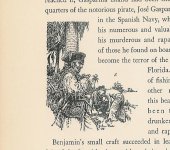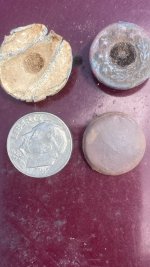RTR
Gold Member
- Nov 21, 2017
- 8,180
- 32,469
- Detector(s) used
-
Teknetics Liberator
Falcon MD-20
***********
Blue Bowl
Angus MacKirk sluice
Miller Table
- Primary Interest:
- All Treasure Hunting
- Thread starter
- #21
The RR station sure dosent look like this today https://www.civilwar.org/learn/civil-war/battles/appomattox-station






